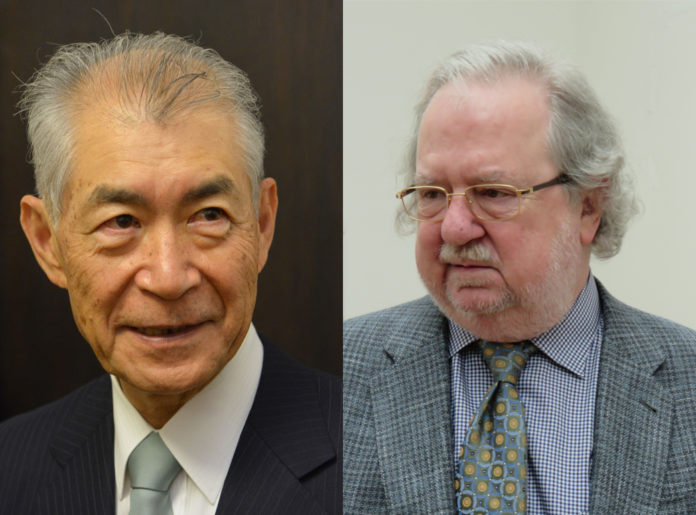American James Allison and Japanese Tasuku Honjo won the 2018 Nobel Prize for Physiology or Medicine on Monday
American James Allison and Japanese Tasuku Honjo won the 2018 Nobel Prize for Physiology or Medicine on Monday for their groundbreaking research on cancer immunotherapy.
“The seminal discoveries by the two Laureates constitute a landmark in our fight against cancer,” the Nobel Assembly at Sweden’s Karolinska Institute said as it awarded the prize of $1 million.
Allison and Honjo “showed how different strategies for inhibiting the brakes on the immune system can be used in the treatment of cancer,” it said, adding that resulting treatments, known as immune checkpoint blockade, have “fundamentally changed the outcome” for some advanced cancer patients.
The hallmark of cancer is their ability to avoid being attacked by immune systems in the body. Immune cells, also called T cells protect us from diseases by killing bacteria, viruses and other foreign bodies. T cells have proteins on them that turn on an immune response and other proteins that turn it off. These are called checkpoints.
The work of Allison and Honjo was involved in identifying these checkpoint proteins which led to the development of drugs called checkpoint inhibitors.
The pioneering work of Professor Allison and Professor Honjo has led to dramatic improvement in treatment of many cancers like melanoma and lung cancers
Allison, professor at the University of Texas MD Anderson Cancer Center, worked on a protein known as CTLA-4 (cytotoxic T lymphocyte associated protein 4) and Honjo, professor at Kyoto University since 1984, separately discovered a second protein called PD-1(programmed cell death protein 1).
Blockage of these proteins by checkpoint inhibitors turns on the immune cells to attack cancer cells. Checkpoint inhibitors are a type of immunotherapy and they are also described as a type of monoclonal antibody or targeted treatment.
The pioneering work of Professor Allison and Professor Honjo has led to dramatic improvement in treatment of many cancers like melanoma and lung cancers, which were previously very difficult to treat.
Commenting on the achievement of Professor Allison and Honcho, Dr. Amarendra Amar, Consultant Oncologist at Indraprastha Apollo Hospitals, New Delhi said, “These new drugs have revolutionised the treatment of many solid cancers and also a few hematological cancers. These medications have come to be the first line treatment for cancers like metastatic melanoma and metastatic lung cancers. Immunotherapy is the future of cancer therapy,” he added.
Drugs that block PD-1 include pembrolizumab and nivolumab and the drug that target CTLA-4 is called ipilimumab. These drugs are also being studied for use against many other types of cancers.


